Last updated: August 12, 2024
Why do we see so many young horses on the racetrack? It’s a question that crosses the minds of many who observe the world of horse racing. The sight of young, sleek Thoroughbreds thundering down the track at just two or three years old might seem surprising, especially when considering the lifespan of a horse.
This practice of starting racehorses at such an early age has become the norm in the industry, driven by a combination of tradition, physical readiness, and economic pressures.
To answer the question, why are racehorses so young, it’s essential to explore the historical context that has shaped these practices over time.
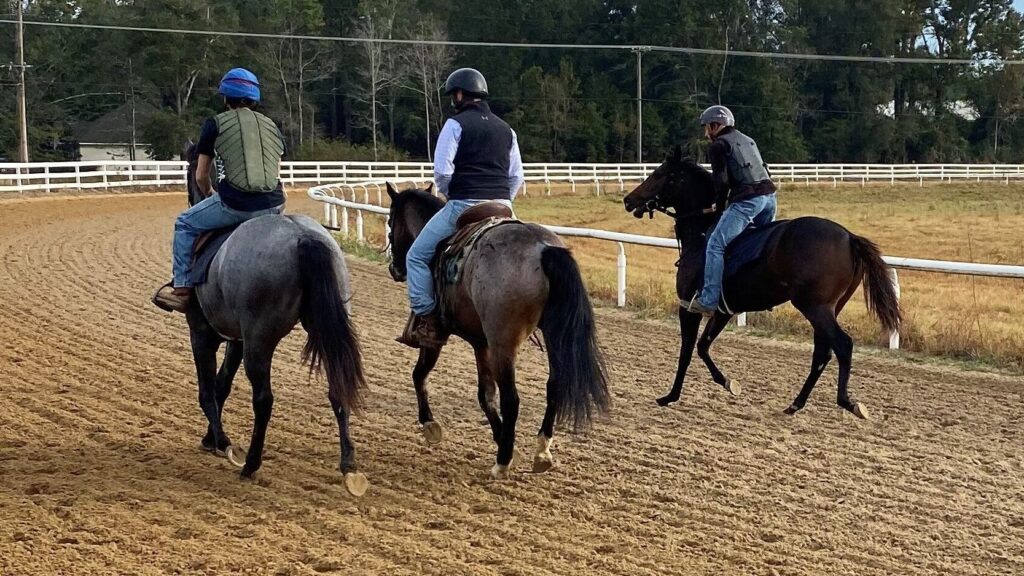
1: Historical Context of Racehorse Age
- Tradition and Evolution
- Horse racing’s deep-rooted tradition emphasizes speed and early performance. Historically, races were created for younger horses, leading to the norm of racing two- and three-year-olds, particularly in prestigious events like the Triple Crown.
- Breeding Practices
- Breeding strategies favor horses that mature quickly to meet the demands of early racing. This selective breeding ensures that young horses are physically and mentally ready to compete, aligning with industry expectations.
While tradition and breeding practices set the stage, the physical and biological factors of these horses play a crucial role in their early entry into racing.
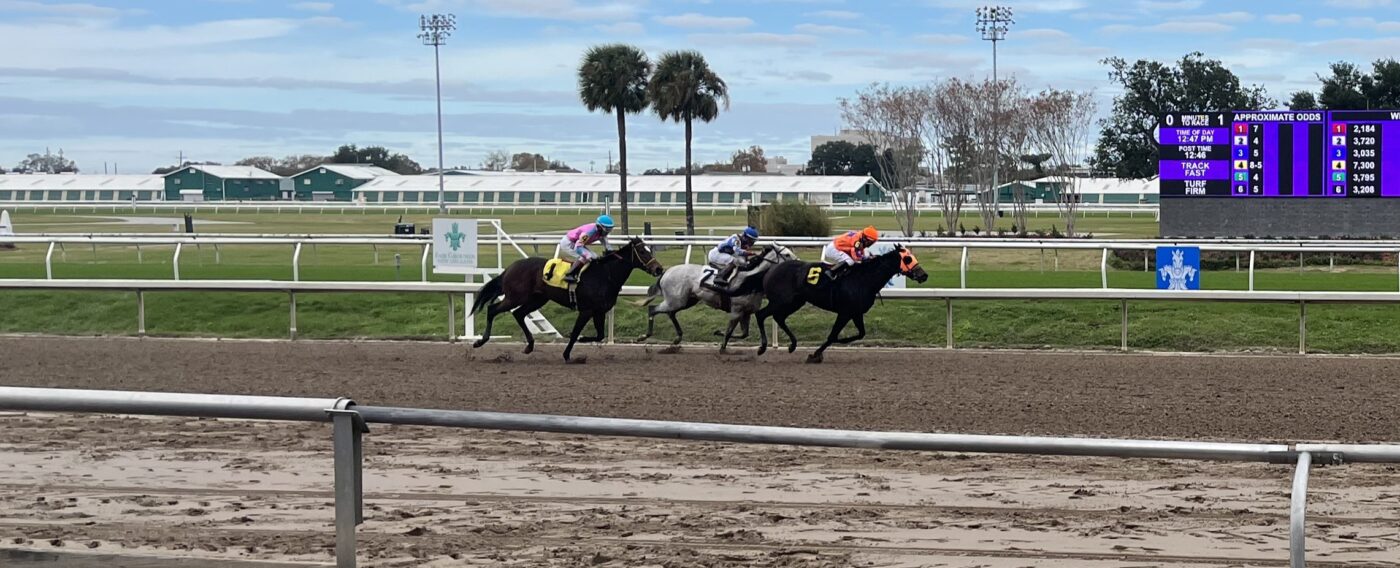
2: Physical and Biological Factors
- Early Maturation
- Certain horse breeds, like Thoroughbreds, are biologically predisposed to develop quickly. These horses typically build muscle mass and bone strength at a younger age, allowing them to handle the physical demands of racing.
- Their early maturation is a key factor in why they are trained and raced at a young age, as they are physically capable of performing at high levels earlier than other breeds (Penn State Extension).
- Peak Performance
- Racehorses often reach their peak performance levels between 2 and 4 years old. During this period, their speed, agility, and endurance are at their highest, making it the ideal time for them to compete. This natural peak drives the trend for early racing, as trainers and owners aim to capitalize on the horse’s prime years of athleticism. (Journal of Equine Science).
Beyond physical readiness, the economic pressures and industry structure further accelerate the trend of early racing.
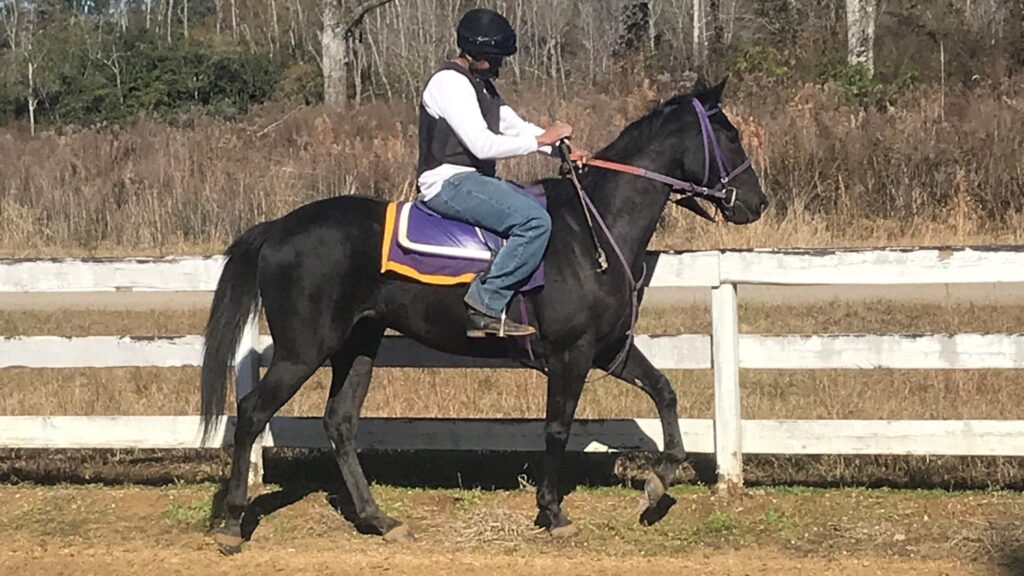
3: Economic and Industry Pressures
- Financial Incentives
- The cost of maintaining a racehorse is significant, with expenses covering training, care, and stabling. Owners and trainers are motivated to start horses young to maximize their return on investment. Racing at an early age can lead to quicker financial returns through winnings and potential breeding opportunities, making it economically advantageous to race younger horses (University of Kentucky Equine).
- Racing Calendars
- The racing industry’s calendar is structured to favor younger horses, with many prestigious races, such as the Triple Crown, specifically designed for horses that are two or three years old. This setup pushes owners and trainers to prepare their horses early to compete in these high-profile events, further reinforcing the trend of racing young horses.
However, these practices come with significant drawbacks, particularly concerning the health and long-term well-being of the horses.
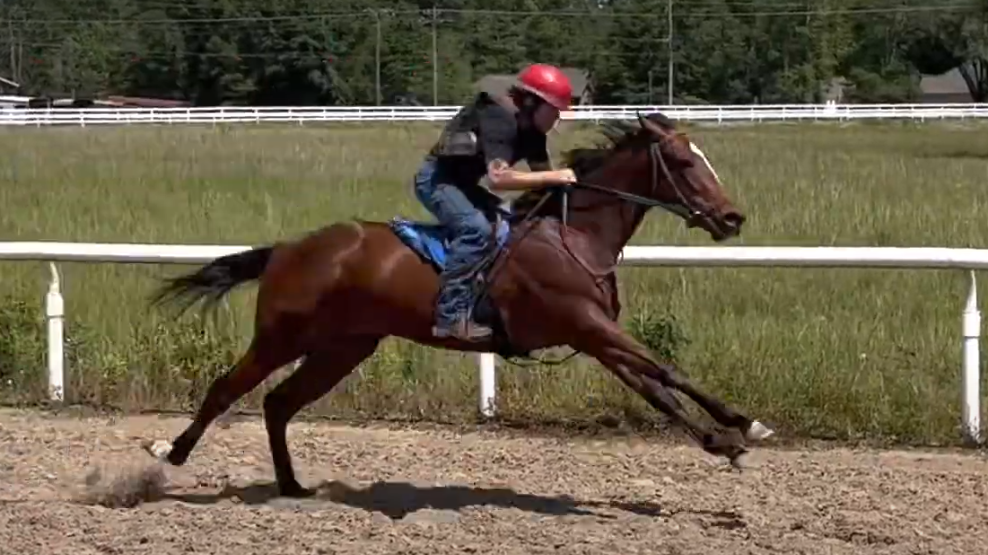
4: The Impact of Early Racing on Horses
- Health Risks
- Racing young horses carries inherent health risks. Although their bones and joints are developed, they are still maturing, making them more susceptible to injuries like stress fractures.
- Physical and mental demands of early racing can lead to early burnout, where a horse’s performance declines prematurely due to the intense stress placed on their developing body (Penn State Extension) (Logan & Nielsen, 2021).
- Long-term Career
- Starting a horse’s racing career early can significantly impact its longevity in the sport. While some horses thrive and build successful careers despite an early start, others may face challenges like recurring injuries or decreased performance over time.
- Careful management and training can help mitigate these risks, allowing some horses to enjoy extended and prosperous racing careers.
These health concerns have sparked significant debates within the industry, leading to shifting perspectives on how young racehorses should be.
Below is a YouTube video showing the early steps of training a horse.
5: Controversies and Changing Perspectives
- Debates in the Industry
- The practice of racing young horses is a subject of ongoing debate within the industry. Many trainers and veterinarians argue that with proper care and conditioning, young horses can safely race without long-term harm.
- However, animal welfare advocates raise concerns about the ethics and safety of pushing horses to compete at such a young age, citing risks of injury and the physical toll it can take on their bodies. These differing viewpoints continue to fuel discussions on whether current practices should be re-evaluated.
- Shifting Trends
- In recent years, some industry practices have gradually shifted, with a growing emphasis on racehorses’ welfare. Some owners and trainers are exploring the benefits of starting horses at older ages, allowing them more time to develop physically and mentally.
- Additionally, there is interest in alternative racing formats that may place less strain on younger horses, indicating a potential move towards more humane and sustainable racing practices. These emerging trends suggest that the industry is beginning to consider the long-term health and well-being of racehorses alongside traditional racing practices (UC Davis Horse Report).
Case Studies
Justify
Justify’s Unique Journey
Justify made headlines by winning the Kentucky Derby and the North American Triple Crown in 2018, despite not racing as a two-year-old.
Training and Racing Timeline
Unlike most Derby winners, Justify didn’t start his racing career until he was three years old, challenging the common practice of beginning race training at two.
Impact on Industry Beliefs
Justify’s success sparked industry discussions, questioning the need for early starts and suggesting that some horses might benefit from a later start. His achievements have led to reconsidering training practices for late-starting horses.
Flightline
Flightline’s Unique Career
Flightline began racing as a three-year-old and retired undefeated after just six races. His victories, including the Pacific Classic by a record 19 ¼ lengths and the Breeders’ Cup Classic, earned him a historic 140 rating in the Longines World’s Best Racehorse Rankings.
Impact on Industry Beliefs
Flightline’s late start and overwhelming success challenge the conventional wisdom that horses must begin racing early to reach their peak. His career highlights how a later, carefully managed start can lead to extraordinary results, influencing how future racehorses might be trained.(Wikipedia) (America’s Best Racing) (The Owner Breeder).
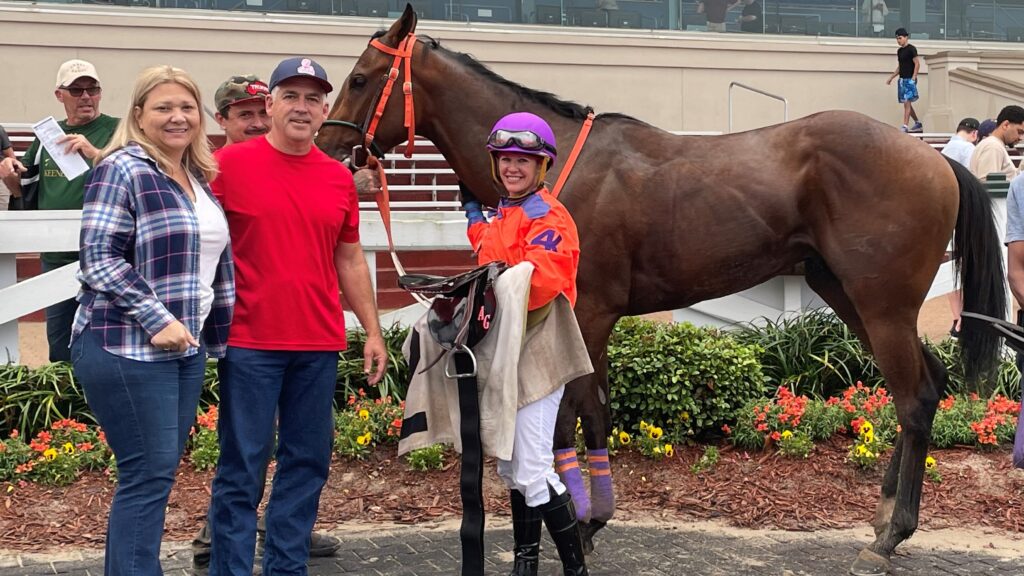
Personal Insight
As someone who’s spent years buying yearlings and getting them ready to race, I’ve seen firsthand how early training can both follow and sometimes break away from what’s typical in the industry.
When we pick out yearlings, we’re usually looking at their physical build and their bloodlines, which is pretty much in line with the common practice of breeding horses to mature quickly.
But here’s what I’ve noticed: even though we start breaking these yearlings when they turn two, not all of them are ready to jump into serious training right away. Some of them really need until they’re three before they’re fully prepared to race.
This goes against the usual push to start racing horses at two, just as they’re hitting their peak performance years. We focus on each horse individually, making sure not to rush them. I’ve learned that if you push a horse too hard too soon, you’re risking their health and career.
From my experience, I’ve come to realize that while the industry tends to favor starting young, giving some horses a bit more time to grow up can lead to longer, more successful careers.
FAQs
What is the average age of a racehorse?
Racehorses typically start racing at around 2 to 3 years old, which is considered the standard age for most competitive events.
Do all racehorses start racing young?
While most racehorses begin their careers at a young age, not all do. Some horses start racing later, depending on their physical development and training regimen.
Are there successful racehorses that started their careers later?
Yes, Flightline is a great example. Horses starting later benefit from additional time to mature and develop, allowing them to perform well despite a delayed start.
Why do all racehorses have the same birthday?
In the Northern Hemisphere, all thoroughbred racehorses officially celebrate their birthday on January 1st. This standardization simplifies organizing races by age group, making it easier to compare performances.
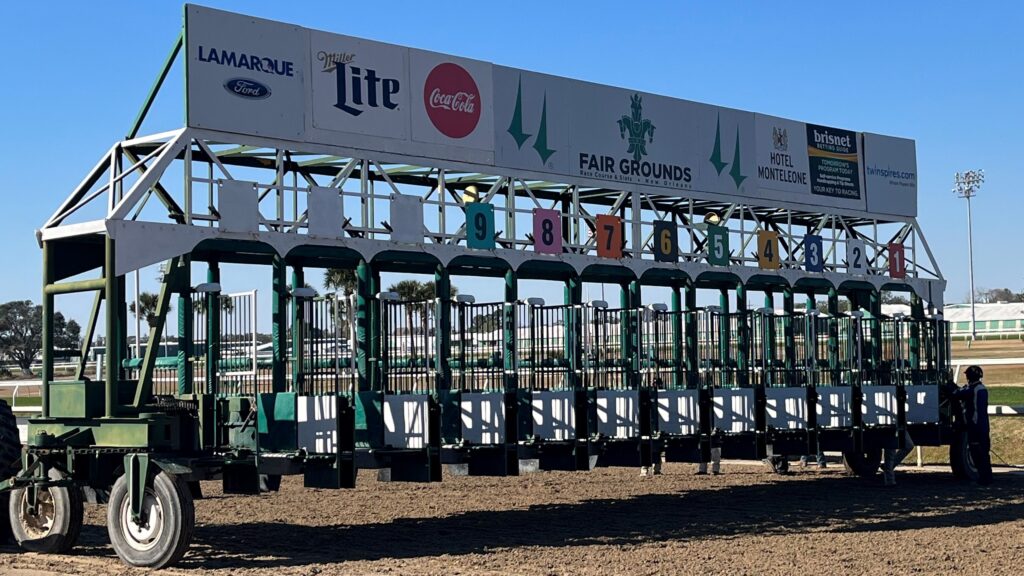
Conclusion: Why Are Racehorses So Young?
Racehorses start young, driven by a mix of physical readiness, economic pressures, and deep-rooted traditions in the racing industry. Breeding practices favor horses that mature quickly, and the most prestigious races are often designed for these younger athletes.
But this approach isn’t without its challenges. Concerns about the health and well-being of these young horses are ongoing, sparking debates and gradually shifting the industry toward more thoughtful and humane practices.
As we learn more about these animals’ needs, the conversation around the right age to start racing is evolving, balancing tradition with a growing focus on animal welfare.
If you found this guide helpful, consider signing up for our newsletter for more insights and updates on racehorse ownership. For personalized advice or specific inquiries, feel free to contact me directly—I’m here to help guide you through your racehorse ownership journey.
I also encourage you to share your thoughts, experiences, or questions in the comments section below. Let’s create a community of informed and passionate racehorse owners. Don’t forget to share this article with your network and spread the knowledge and love for racehorse ownership.
Thank you for reading. I look forward to connecting with you through our newsletter, direct communication, or the comments section. Here’s to the thrilling journey of racehorse ownership

About the Author: Miles Henry
Lifelong Horseman | Racehorse Owner | Published Author
Miles Henry brings over 25 years of hands-on experience training and owning Thoroughbred racehorses. Raised with Quarter Horses and Appaloosas, he’s spent a lifetime learning from horses—on the track, in the barn, and in the field. Today, he runs a small but successful racing stable in Louisiana and shares real-world insights on HorseRacingSense.com, helping horse owners, fans, and bettors navigate the sport with confidence.
📚 Books: View Miles’s books on Amazon »
🎧 Podcast Guest: Animal Tales Ep. 32 |
YouTube Interview
📩 Newsletter: Sign up for racing tips and horse care advice »
🔗 Follow Miles:
Twitter |
Facebook |
YouTube


